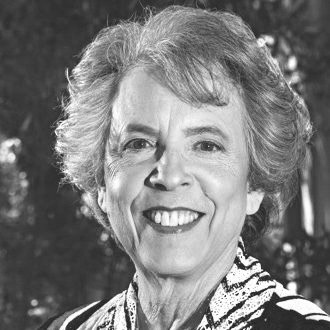This summer, I had a reunion with female cousins who are all my age. We live all around the country, so we hardly ever see each other. Remembering the little girls we once were, and discovering the women we’ve become, was really amazing.
Here we were together again, no longer children sharing our hopes and dreams, but professional women sharing the stories of the successes and the challenges of our lives as we traded pictures of our children and our partners. As the stories of our lives continued into the night, they became one story — the story of our family, of the courage of our immigrant great-grandparents, Meyer and Sarah, and their 13 children — our grandparents and great aunts and uncles after whom each of us were named. It was both a Jewish story and an American story, a story about the centrality of family and generosity, of taking care of other people, of the importance of education and of the great gift of living in a democracy. In retelling that family story, each of us realized how it had helped shape our own individual stories and how it both blessed and challenged us.
Our own stories are shaped by bigger narratives. Those bigger narratives are sacred stories that make a claim on our lives, that challenge us to live out the values and the ethos embedded within them. The late Robert Cover in his classic article, "Nomos and Narrative," called this "narrative theology."
The beginning of this week’s Torah portion provides an intriguing example. It directs a typical Israelite farmer — at the moment when his harvest is finally successful — to make a ritual recitation of thanksgiving as he brings an offering of some of every first fruit. This is one of only two texts in the Torah that articulate the exact words a layperson must use in addressing God.
As he hands his offering to the priest, the farmer says: "I tell the story this day before the Lord your God that I have entered the land that the Lord swore to our ancestors to give us." Then as the priest lays the offering at the altar, the farmer would continue: "My father was a fugitive Aramean. He went down to Egypt with meager numbers and sojourned there; but he became a great and very populous nation. The Egyptians dealt harshly with us and oppressed us; they imposed heavy labor upon us. We cried to the Lord, the God of our ancestors, and the Lord heard our plea and saw our plight, our misery and our oppression. The Lord freed us from Egypt by a mighty hand, by an outstretched arm and awesome power, and by signs and portents. He brought us to this place and gave us this land, a land flowing with milk and honey. Wherefore I now bring the first fruits of the soil which You, O Lord, have given me."
It is not surprising that the Torah instructs the farmer to give thanks. Anyone who has ever had the privilege of experiencing a harvest, whether of crops, of the growth of a child, or of the realization of a dream knows the instinct of gratitude. What is surprising is the way the Torah instructs the farmer to express his gratitude.
The Torah doesn’t just tell the farmer to say, "Thank you for the gifts you have given me." The Torah instead instructs him to tell a story. It is his story ("I tell the story this day that I have entered the land"), but he is to tell it within the context of the sacred narrative of our people. That narrative is familiar to us all. It forms the core of the Passover hagaddah, the five-verse history of our people, from our ancestor Jacob (or Abraham and Isaac), the wandering Aramean, through the story of our oppression and liberation from Egyptian bondage to our entrance into this land flowing with milk and honey.
Telling his story within the sacred narrative of our people makes a claim on the farmer. Because he is part of this people who once were slaves, he knows what it means to be a stranger in a strange land. Now that the farmer is successful in his own land, he has obligations that flow from his sacred narrative. The very next verses (26:11) enjoin him to share his harvest with the Levite and the stranger, to set aside one-tenth of his produce for the poor.
There might have been other ways to tell this sacred story. There is a lot that is left out — all the complaining and rebellion that characterized the 40 years in the desert. The version of this telling is the ideal story, of our calling out to God and God’s response, of partnership and covenant. It is a story that makes a claim on us, to live up to our part of the partnership to create a society worthy of the good land that God has given us.
This sacred story is our story, as much a part of us as each of our family stories are — and like those family stories, it blesses and challenges us.






















 More news and opinions than at a Shabbat dinner, right in your inbox.
More news and opinions than at a Shabbat dinner, right in your inbox.